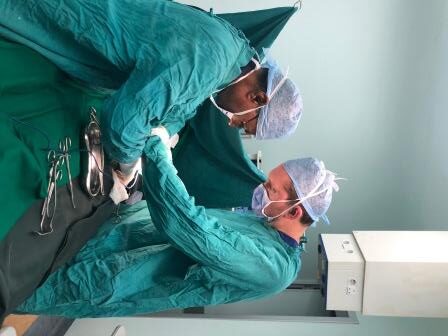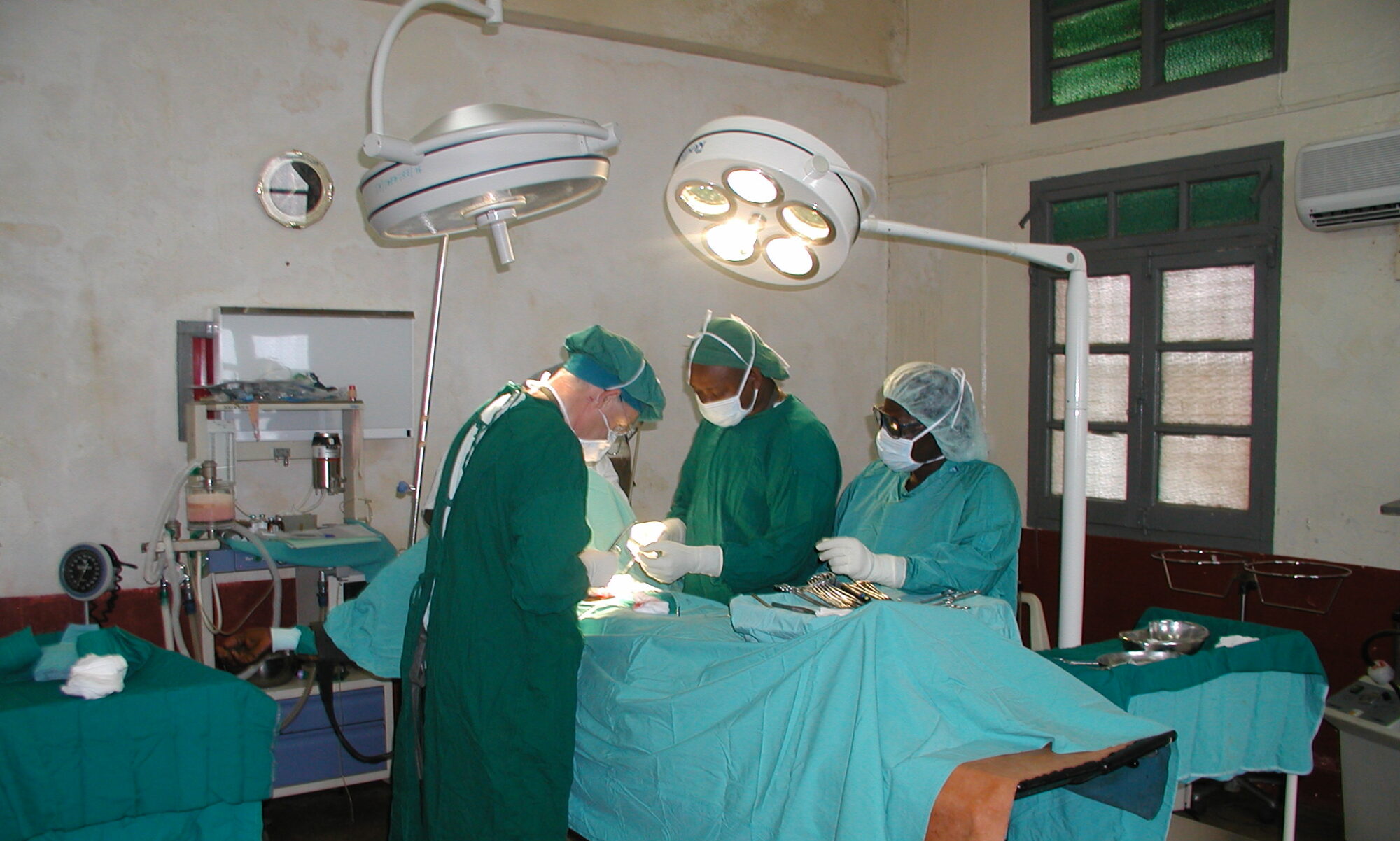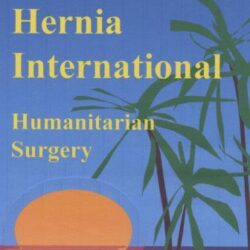Bewal (Pakistan) Hernia Camp 2019 Report
Steve Lindley
The week leading up going away is normally the time when excitement kicks in, but on this occasion, re-tension of indo-pak relations and the fact that my passport (bearing a previous Indian visa) was sat in the reject pile at the consulate, meant that I was rather anxious.The few days before I was set to leave, my concerns had evaporated. We arrived in Pakistan and convened at the impressive Bewal International Hospital to meet the team.
The team consisted of hospital co-founder Atiq; an ex-pat Pakistani who works in Birmingham, UK as a vascular and general surgeon, his brother; Khaleeq a maxillofacial surgeon who also works in Birmingham and is the hospital’s co-founder, was on hand to assist and arrange much of the logistics to the mission; Richard, a general surgeon from Tasmania, Australia and myself, an enthusiastic General Surgical registrar from the UK. Our anaesthetists comprised of Sahjaad and Zehrin, (UK Consultant Anaesthetists) who tirelessly kept the list running with unwaveringly effective spinal anaesthesia.

Atiq, Steve, Sahjaad, Richard, outside Bewal International Hospital
Healthcare in Pakistan can be poor, with limited access to good quality services, particularly in rural areas. Most treatment is not free of charge, and so healthcare inequality is significant and the burden of simple treatable pathology vast. The hospital was built in 2010 with money raised in the UK to support a secondary care facility for Bewal, a small town of 300,000 people, 50 miles south of Islamabad. In the months prior to our arrival, we advertised the hernia camp, and patients presented from the surrounding area, were seen and worked up by the hosptials’ resident medical officers in preparation for our arrival.
We set aside 4 days for our 3 surgeons to work into the evening and through the repair of 76 patients with 81 hernias. Hernias included epigastric, paraumbilical, inguinal, femoral, paediatric (inguinal) and one or two recurrent hernias. Almost all of the cases were performed under spinal anaesthesia, apart from the epigastric and paediatric hernias whom had general anaesthesia. To add to the variety, as we were leaving after a long day of operating, we were met at the entrance with a young patient with a bleeding AV fistula. Duty bound, we took the girl to theatre, explored her wound and salvaged her newly formed vascular access. Everyone left with an eve n warmer feeling than the previous days had given us, although significant more tired!

Steve Operating with the hospital’s OPD
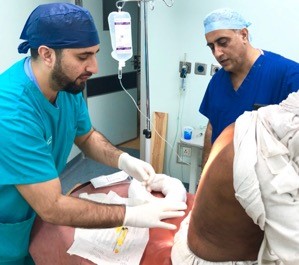
Khaleeq assisting Sahjaad perform a spinal anesthetic
The hospital staff who worked with us all week were tirelessly supportive. The scrub team showed unbelievable levels of dedication and hard work: cleaning theatres, sterilising equipment, recovering and discharging patients, time and time again. Without their support, we could not have repaired one, let alone efficiently repaired all 81 hernias. We were also lucky to be visited by several local surgical residents who scrubbed-in and lent a hand.
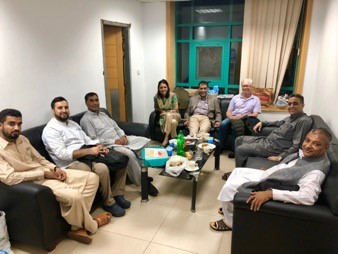
The team at the end of the day, still with plenty of food remaining!
The visiting team were hosted like royalty in a new, beautiful, family house across the other side of the town from thehospital. We were spoilt and never left hungry with an abundance of authentic Pakistani cuisine, laid on my an excellent inhouse chef, and visited frequently by friends and family, keeping us going during the working day.Atiq and Khaleeq were kind enough to show the visiting team around Bewal and onto Islamabad. We were welcomed into the local secondary school to observe ‘presentation day’, and were invited to give speeches. We were also received by the local MP for and treated to even more impressive food. Islamabad is a striking new settlement overlooked by the rolling Margalla hills. We spent lunchtime on the last day admiring the views, before rounding off the trip by visiting Rawal lake, the Pakistan monument and Faisal Mosque; the fourth largest mosque in the world.

A view of Islamabad from the Margalla Hills
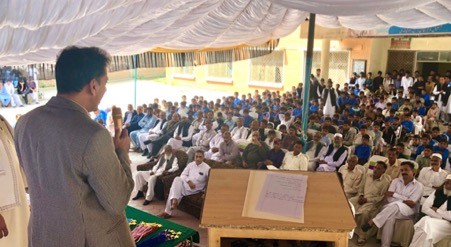
Atiq giving a speech to the local school.

Sahjaad, Richard, Atiq and Khaleeq at the Faisal Mosque in Islamabad
This hernia international mission has proven itself again to be a thoroughly successful endeavour, with a tally of 374 hernias repaired since 2014. The team in Bewal, along with Atiq and Khaleeq have the wheels well-oiled to ensure that many of the local residents have a chance at receiving free, life-changing, safe surgery. From my perspective, this opportunity has been incredible, combining the hugely rewarding experience of contributing to the teams’ achievement of fixing 81 hernias with a thoroughly memorable and privileged tour of Pakistan, the likes of which is not afforded to the average tourist.
